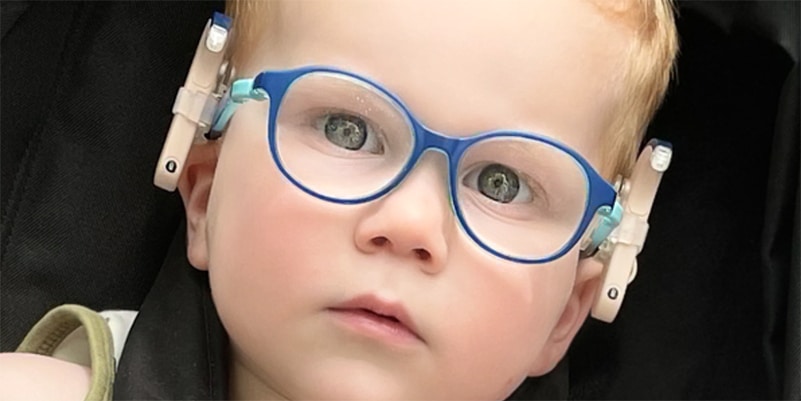
It’s almost Halloween, and if you have a child with a cochlear implant who wants to dress up and go trick-or-treating, here are some tips for how to use Halloween to improve their hearing, listening, and communication skills.

It’s almost Halloween, and if you have a child with a cochlear implant who wants to dress up and go trick-or-treating, here are some tips for how to use Halloween to improve their hearing, listening, and communication skills.

Music is everywhere—but can you enjoy it with a cochlear implant? Absolutely! We talked to music educator Malin Kumkar to find out more.

Does your child need to wear eyeglasses? Wearing glasses and a hearing implant processor behind the ear can lead to issues with keeping both devices on. This is particularly frustrating if you’re trying to increase the amount of time your child listens with their audio processor daily.

Acoustic highlighting is a great strategy to help when you’re teaching your child new vocabulary. Put simply, you put emphasis on a specific word when you are saying it in a phrase or sentence to make it stand out from the rest of the message.

What’s the best way to have good listening and speaking skills? It’s to have a solid foundation built on noticing and recognizing sounds. Playing listening games is a good way to develop these basic skills.